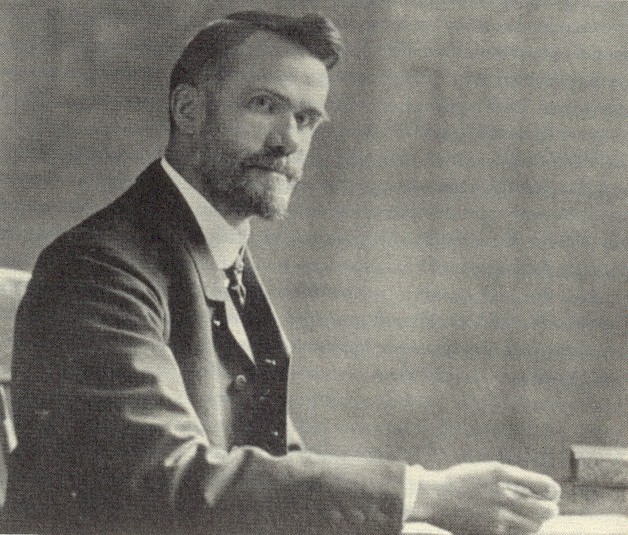先週までのいくつかのエッセイ(③、④、⑤)で、米国のキリスト教、特に福音派は、教会を手段と考えていると主張してきた。教会の本質的なアイデンティティーは、ほとんどの場合、伝道活動か何かを行うために召されていると要約される。隣人を愛することの重要性は否定しないが、隣人への関心が神への情熱を削いでいると私は述べてきた。私たちはアルツハイマー病が進行しているようなものだ。自分が何者で、何をすべきか分からず、追い立てられるように立ち上がり、足が向かっていく先をただ歩いているように感じる。
[toggle]In my last few essays (here, here, and here) I’ve been arguing that American Christianity, and evangelical Christianity particularly, thinks about the church in mostly instrumental ways. The church’s core identity is summed up in what it’s called to do, in most cases, one form of mission activity or another. Without denying the urgency to love our neighbors, I’ve been saying that our horizontal concerns for the neighbor have all but eclipsed our passion for God. It’s like we have an advanced case of Alzheimer’s: We don’t know who we are or what we’re supposed to be about, but we feel driven to get up and walk wherever our legs will take us. [/toggle]兄弟姉妹がキリストのうちに深く留まり、神を賛美し、永遠に神を楽しむことが教会にとって第一であり、本質的で永遠なことだと私は聖書から示した。これは、私たちが何をすべかではなく、私たちが何者であるかということだ。
[toggle]I’ve tried to show from Scripture that the church is first and foremost—and at its essence and for eternity—about the vertical, brothers and sisters embedded deeply in Christ, glorifying God and enjoying him forever. This is not just what we do but who we are. [/toggle]私にとってこのすべては、神学的な構成要素ではなく、教会と世界の関係について考えるための創造的な方法だ。主流派の牧師と信徒であり、30年に及ぶ米国の福音派ジャーナリストとしての私の経験に基づいて、教会に対するこの見方は、米国のキリスト教の健全さと存続にとって非常に重要だと思う。これがこのエッセイで論じていることだ。
[toggle]All this to me is not a theological construct, a creative way to think about the relationship of the church to the world. Based on my experience as a pastor and member of the mainline, and my three decades as a journalist embedded in American evangelicalism, I think this view of the church is crucial for the very health and survival of American Christianity. This is what I will argue in this essay. [/toggle]興奮から絶望へ
[toggle]From Excitement to Despair [/toggle]「教会は主に伝道的なものであり、世界のために教会が存在する」と考えられる時、何度も何度も見てきたことがある。
[toggle]Here is what I’ve seen happen time and again when the church is conceived primarily as being missional, existing for the sake of the world: [/toggle]
ウォルター・ラウシェンブッシュ
まず、それは多くのクリスチャンを元気づける。それは認めよう。ラウシェンブッシュが社会的福音を明言した動機の一つはそれだった。彼は、教会の席から立ち上がって、通りに出てほしかったのだ。そして、自己満足していた英国の教会に対するニュービギンの伝道的な言葉は、多くの人を目覚めさせた。私はその魅力を理解している。
[toggle]First, it energizes many Christians—let’s acknowledge that. This was one motive of Rauchenbusch as he articulated the social gospel—he wanted to church to get out of the pews and into the streets. And Newbigin’s missional word to self-satisfied British churches woke many people up, no doubt about it. I understand the attraction. [/toggle]
レスリー・ニュービギン
私は、死にかけている瀕死(ひんし)の状態の教会にいる。教会が伝道的なスタンスをとる時、少なくともしばらくの間、教会は伝道的になる。「教会は世界をより良くする」と考えるとき、教会はエキサイティングな方向転換をする。教会員の心に火をつけ、彼らに新しい意味と目的を与える。彼らは今や「教会が世界をより良くする」と考えているので、これまで以上に深く熱心に教会に関わるようになる。当然ながら、教会が世界を変えるためにその組織を作ることを考える。
[toggle]I’ve been in moribund, dying churches that, when they adopt a missional stance, well, it transforms them, at least for a time. When they conceive that the church is to make a difference in the world, the church makes a shift that is exciting. It lights a fire under members, giving them new meaning and purpose. They enthusiastically give themselves ever more deeply to the church, because they now think the church is going to make a difference in the world. Naturally, they imagine, the church is going to shape itself and its organization to transform the world. [/toggle]しかし、彼らが最終的に分かったことは、「教会がこれを行うことはめったにない」ということだった。教会は伝道に力を注ぐことができない。教会を伝道的にしようとしても失敗する。周囲の文化に手を差し伸べることを犠牲にして、礼拝と信仰教育と弟子訓練に投資し続けている。多くのところで失望が起き、教会で伝道の召命を受けた人々には特にそれが強く感じられた。あらゆる書物、相次ぐ宣教会議でこの問題がもっぱら取り扱われる。
[toggle]What they eventually discover, however, is that churches rarely do this. The church fails to give more to missions. It fails to reorganize itself missionally. It keeps investing in worship and Christian education and discipleship at the expense of reaching out to the surrounding culture. This disappointment is felt in many quarters and felt especially keenly by those who assume a missional call for the church. Book after book and missional conference after missional conference is dedicated to addressing this problem. [/toggle]実際、ほんの一握りの教会は、伝道的な組織に変わることがあるが、それは通常、短期間のことだ。この時点で伝道的な人々は非常にがっかりし、怒る。彼らは教会を「偽善、利己主義、的外れ」と言って非難する。伝道的な人々が認識できないのは、結局のところ私たちは罪人だという現実だ。それは、どんな時代のどんな場所の教会にも当てはまる。最初から教会は伝道的には作られていないのだ。
[toggle]A handful of churches do, in fact, turn themselves into missional organizations—but usually only for a short period. The missional-minded become very discouraged and angry at this point. They accuse the church of hypocrisy, selfishness, and irrelevance. While such is true of the church in all times and places—we are sinners, after all—what our missional friends fail to recognize is this reality: The church, from the start, has not actually been designed to be missional. [/toggle]明確にするために、「教会」とは何を意味するかを述べよう。私は伝統的な意味で教会を理解している。キリストにあって神を礼拝するために集まった信者による、実体ある体。説教のまわりに集い、「言葉なるキリスト」を教え、聖餐と洗礼を行い、共に生き、愛のうちに成長する。私たちのほとんどは直感的にこれを「教会」と理解している。専門の働きをする超教派団体も、神の家族のメンバーによって構成されているので、その延長線上に「教会」と呼べるかもしれない。しかしここでは、教会の卓越した表現として、地域にある礼拝する教会という具体的な現実に焦点を当てよう。
[toggle]To be clear, let me say what I mean by “the church.” I understand church in a traditional sense, of a concrete body of believers gathered to worship God in Christ, gathered around the preached and taught Word, sacraments/ordinances like the Lord’s Supper and baptism, living together and growing in love. Most of us instinctively understand this as “church,” even though we might acknowledge that parachurches, with their specialized ministries, are composed of members of the family of God and therefore, by extension can be called “the church.” But here, I focus on the concrete reality of the local, worshiping congregation as the preeminent expression of the church. [/toggle]この点を踏まえて、なぜ教会が根本的に伝道するようには作られていないかを示唆する例を挙げよう。
[toggle]In light of this, let me give an example that suggests why the church is not designed to be missional at its core. [/toggle]教会は青年担当牧師を招へいし、両者はその職務内容を書く。彼の主な職務は、地域社会で問題のある若者に手を差し伸べ、キリストのもとに導き、教会につなげることだ。多くの教会員はこの伝道的なアプローチに対して拍手を送り、背中をたたいて、それを始めるように言う。
[toggle]A church hires a youth minister, and the church and youth minister write up a missional job description: The youth minister’s main job is to reach out to troubled youth in the community and bring them to Christ and to the church. Many church members applaud this missional approach, and they pat him on the back and tell him to get started. [/toggle]そこで彼は地元の高校に出かけて、さまざまなノンクリスチャンの若者と共に過ごし、彼らを教会に呼ぶ。しかし、青年担当牧師がこのグループのために奉仕するには、並外れた時間と労力を要する。ノンクリスチャンの若者に手を差し伸べようとすればするほど、教会員の若者を教える時間は少なくなる。当然、教会員の親たちは、10代の子どもがキリストのうちに成長することを切望しており、そのためにも青年担当牧師を招へいしたと考えている。しかし彼は、教会外の青年たちに伝道するために留守にしているので、いつもどこにいるのか分からない。
[toggle]So he goes out to the local high schools and hangs out with various lost souls, inviting them into the church. But the youth minister finds that it takes an extraordinary amount of time and energy to minister to this group. The better he reaches out missionally to lost teens, the less time he has to disciple the youth of the congregation. Naturally, parents of the church’s youth are anxious for their teenagers to grow in Christ, and they thought that in part they had hired the youth minister to help do that. But this youth minister is usually nowhere to be found, because he’s out in the community ministering to un-churched youth. [/toggle]これがどこに向かうか分かるだろう。明らかなのは、(a)問題を抱えた若者には、クリスチャンが手を差し伸べる必要がある。(b)クリスチャンの若者には、教育と育成が必要。(c)青年担当牧師がその両方を行えることはめったにない。教会は、どちらも行うようには作られていない。私の聖書の議論が正しければ、同じ方法で両方を行うべきではない。青年担当牧師の主な目的は、青少年が愛のうちに聖なる者、汚れのない者となるのを手助けすることだ。礼拝において神の栄光を賛美するという文脈の中でそうするのだ。
[toggle]You see where this is going. It is clear that (a) troubled youth need Christians to reach out to them, and (b) Christian youth need teaching and nurturing, and (c) it is the rare situation in which a youth minister can do both. The church as church is simply not set up to do both, and if my biblical argument is correct, it is not supposed to do both in the same sort of way. The primary purpose of a youth minister in my reading is to help youth become holy and blameless in love, doing so in the context of praising God’s glory in worship. [/toggle]これではまるで教会が世界を見捨てているかのように、とても利己的に感じられるので、苛立つ人もいるだろう。しかし教会は、世界をより良くするための効率的な機関ではないのだ。たとえば、空腹の人に食べ物を分け与えることに情熱を注いでいるなら、教会はあちらこちらで助けることはできる。しかし、本当に世界をより良くしたいなら、本当に飢えて栄養失調の人を減らしたいなら、そのようなことを専門とする政府か非営利団体に時間を割いたほうがいい。
[toggle]This makes some of us squirm because it feels so selfish, as if the church is deserting the world. But it turns out that the church is not a very efficient institution for making a difference in the world. If you are passionate about feeding the hungry, for example, churches can help here and there. But if you really want to make a difference, really cut the numbers of the hungry and malnourished, it’s better to give your time to a government or nonprofit agency that specializes in such things. [/toggle]性的な人身売買、薬物乱用、労働搾取、環境悪化などについても同じことが言える。教会は寄付をしたり、委員会を組織したり、貧しい人のために食料支援をしたりすることはできるが、それが現実に大きな影響を与え続けることはない。そうするように教会は作られていないからだ。教会には、本来なすべき大切な働きがたくさんある。
[toggle]The same is true whether we’re talking about sex trafficking, drug abuse, exploitation of labor, environmental degradation, and so forth. The church as church can make a donation, organize a committee, sponsor a food pantry, but it cannot really make a significant, lasting impact. It is not set up to do that. In fact, it has many other really important jobs to do. [/toggle]たとえば、何よりも、神への公の礼拝のために時間と場所を提供するところだ。人々が聖餐と洗礼にあずかり、神の栄光をたたえ、神に出会うところ。子どもや若者、大人が、神が誰であるか、また信仰生活について教えられる場所。クリスチャンが互いの励ましと祈りを受けるために集まる場所。私たちが神に従って生き、愛のうちに聖なる者、汚れのない者になり、神の栄光を賛美することを学ぶ場所なのだ。
[toggle]It is called, for example, more than anything, to provide a time and place for the public worship of God and for people to participate in the sacraments/ordinances of baptism and the Lord’s supper—to meet God as we glorify him. It is also called to teach children, youth, and adults about who God is, as well as the shape and nature of the Christian life. It is a place where Christians gather to receive mutual encouragement and prayer. It’s the place where we learn to live into our destiny, to be holy and blameless in love, to the praise of God’s glory. [/toggle]それは、教会に来ていない問題のある若者を無視してもいいという意味ではない。そんなことは断じてない。しかし教会は、彼らに手を差し伸べるのに最も適したところではない。私が地元の青少年伝道団体のファンで、献金をし、役員を務めてきたのはそのためだ。彼らはこのために素晴らしい仕事をしている。超教派団体は専門的な支援活動に長(た)けているのだ。
[toggle]This does not mean the church is free to ignore troubled and unchurched youth. Far from it. But the church is not the institution best suited to reach out to them. This is one reason I’ve been a fan, contributor, and board member of my local Young Life ministry—they do a great job at that sort of thing. Parachurches are awfully good at specialized outreach. [/toggle]しかし、教会が伝道的であることに希望を置く人々はどうだろう。教会がほとんど変わらず、伝道的なイメージに変わる望みが粉々になった時、何が起こるだろう。彼らに何が起き、そして教会はどうなるだろうか。
[toggle]But what about those people who have set their hope on the church being missional? What happens when their church hardly budges and their hopes for a church transformed in the image of the missional are dashed? What happens to them, and what happens to the church? [/toggle]私の経験では、以下のことが起こる。多くの人は教会をあきらめる。彼らの見解では、教会は単に失敗したので、もう行くのはやめ、代わりに専門機関(超教派団体やその他のNPO)のためにますます時間を割くか、政治に精力を注ぐ。それが世界をより良い場所にすることにほかならないからだ。「教会が世界のために作られた」という考えが染みついているなら、あなたの目的は、世界をより良い場所にすることだ。教会はこの点で明らかに効果がないのに、なぜ教会について思い悩むのか。むしろユニセフか民主党に身を献げるほうがいい。
[toggle]In my experience, what happens is this: Many give up on the church. The church in their view has simply failed, and so they stop coming. Instead, they give more and more of their time to specialty institutions (parachurches and other nonprofits), or they throw themselves into politics—which is about nothing else but making the world a better place. If it’s been ingrained in you that the church was created for the world, that your purpose is to make the world a better place, why bother with the church, because it is clearly not very effective in this respect. Better to give oneself to UNICEF or the Democratic Party. [/toggle]そして、これこそまさに、主流派の多くの人が過去数十年にわたって行ってきたことだ。主流派の教勢が落ちているのには多くの理由があるが、私の考えでは、これが大きな理由の一つだ。1960年代のどこかで主流派は、「教会が世界のために作られた」、「教会の目的は世界をより良い場所にすることだ」という考えに魅了された。それは最初、熱意につながったが、その後、そうでないことが明らかになった時に絶望した。年次大会で政治的な発言をする以外、世界をより良い場所にするための準備が教会には整っていなかったのだ。そうした世代の子どもたちは、あれこれ考え合わせて教会を放り出し、教会なしで世界を良くしようと試みることに取りかかった。
[toggle]And this is precisely what so many in the mainline have done over the last many decades. There are many reasons for the numerical decline of mainline Christianity, but to my mind, one of the main ones is this: Somewhere in the 1960s, mainliners became mesmerized by the idea that the church was created for the sake of the world, that the purpose of the church was to make the world a better place. It led to initial enthusiasm, yes, but then despair as it became apparent that, other than making political pronouncements at annual conventions, the church was ill-equipped to make the world a better place. When the children of that generation put two and two together, they saw that they could chuck the church and still go about trying to make a difference without it. [/toggle]しかし、教会が伝道的であることがどれほど悪いのかに気づいた時には、何かが起こり、それらの多くはますます悪くなる。教会が世界をより良くできないために、若者たちが教会からぞろぞろと去っていくのを見て、教会はパニックに陥る。残念なことに彼らは、教会が世界をより良くするための手段だと仮定し続けている。それで彼らはさらに屋上から叫ぶ。そして、より多くの社会的な病について、さらに多くの発言をする。彼らの神学の傾向はこれまで以上に世俗的になる。その時、主流派の祈りは民主党のように、福音派の礼拝は共和党のようにしか見えない。
[toggle]But something else happens when churches recognize how bad they are at being missional. Many of them double down. They see young people leaving the church in droves because it isn’t relevant to the world, because it isn’t making a difference in the world, and these churches panic. Unfortunately, they continue to assume that to be relevant means to make this a better world. And so they shout it even more from the rooftops, and they make more pronouncements about more and more social ills, the more recent the better. The tone of their theology becomes ever more secular. Then you find more and more that the mainline churches look only like the Democratic Party at prayer, and evangelical churches like the Republican Party at worship. [/toggle]
ジェリー・ファルエル(写真:Liberty University)
今日、多くの左派の福音派が、主流派によって切り開かれた道を進んでいることは明らかだ。そして、ジェリー・ファルエルと宗教右派の台頭に始まる右派の福音派は、市民宗教、神と国家の宗教によって切り開かれた道をたどっている。左右どちらも、「世界をより良くしたい」、「自分たちの光に従って世界をより良い場所にしたい」と切望している。それは両者とも、「教会の目的は、世界をより良い場所にすることだ」と信じているからだ。しかし私の見解では、そうなる代わりに、彼らは教会をさらに左派と右派に分裂させ、疎外してしまうだろう。(後編に続く)
[toggle]Today it seems clear to me that many of the evangelical left are traveling down the path hewn by the mainline. And the evangelical right—starting with the Jerry Falwell and the rise of the Religious Right—have been on the path hewn by civil religion, a religion of God and country. Both left and right are anxious to make a difference in the world, to make the world a better place according to their own lights, because they both believe that the purpose of the church is to make the world a better place. Instead, in my view, they will end up marginalizing the church left and right even more. [/toggle]